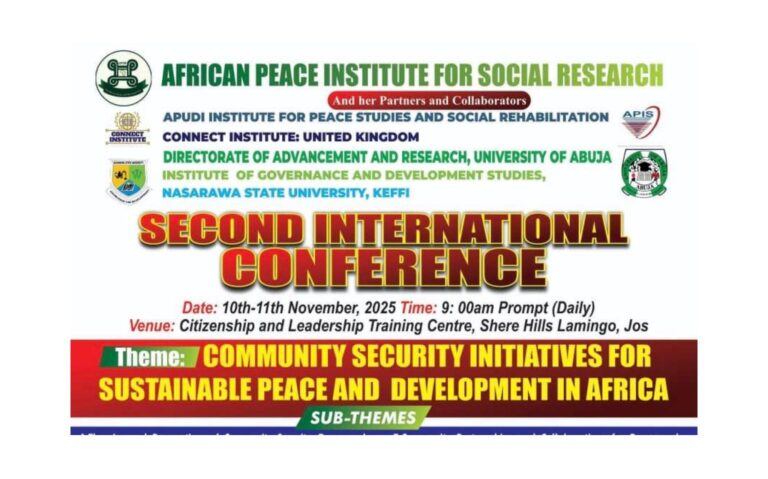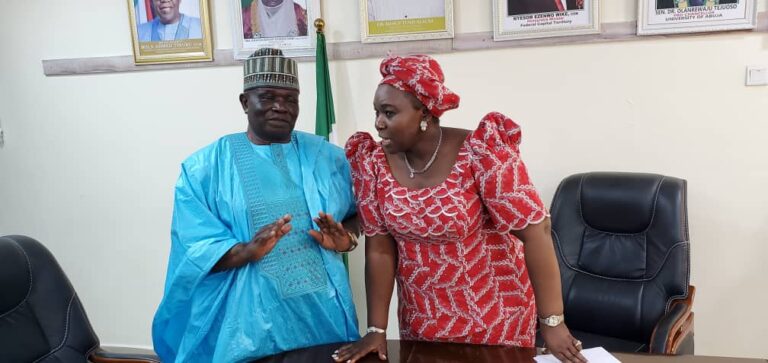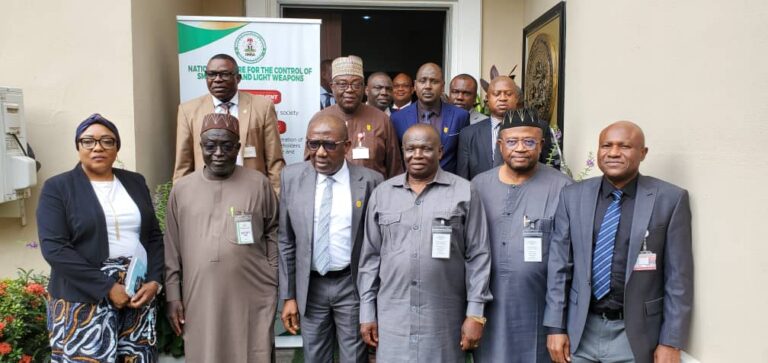The Director of the APUDI Institute for Peace Studies and Social Rehabilitation (APIS), Prof. Danladi Abok Atu, has led a team of trainers to the National Institute for Police Studies (NIPS), Abuja, for a strategic training workshop on police reforms centered on Intelligence-Led Policing (ILP) in Nigeria.
Themed “Intelligence-Led Policing (ILP) and Human Rights”, the workshop seeks to equip desk officers of the Nigeria Police Force (NPF) with the skills and knowledge required to drive police reform processes in commands across the country, in response to rising crime rates and evolving security threats.
Laying the foundation for the program, Prof. Atu outlined the concepts, theories, and global best practices of ILP, as well as the importance of peer review mechanisms. He emphasized the urgent need for a paradigm shift from traditional policing to intelligence-driven strategies, which have become global standards for effective law enforcement. Drawing on international examples, he highlighted how the Nigerian policing environment could be transformed through the empowerment of the intelligence community.
The training is supported by the German Government through its GS-Foundation and funded by the United Nations Development Programme (UNDP) via the Police Reform Secretariat.
In his address, the Director-General of NIPS, Prof. Olu Ogunsakin, welcomed participants to the institute, describing it as the apex training ground for NPF officers. He urged participants to take full advantage of the expertise of Prof. Atu and his team, actively engage in discussions, and contribute to aligning the Nigeria Police Force with global best practices.
Representing the Deputy Inspector-General of Police, Force Intelligence Department (FID), CP Nnanna Oji stressed the sensitive nature of intelligence work, noting that information gathering is central to the success of police operations and investigations.
Also speaking, the Commissioner of Police in charge of Training, CP Eloho, reaffirmed the NPF’s commitment to building a professional and responsive police force as custodians of public trust. He underscored that ILP is not just a strategic option but an operational necessity, and emphasized that all intelligence gathering must be conducted lawfully, with due respect for human rights. He described the training as timely and commended the partners for their support.
Professor Atu also delivered a paper on “Intelligence-Led Policing (ILP) and Human Rights Training” which set the theoretical framework to kickstart the week long workshop.
Joining Prof. Atu as resource persons for the workshop are, Professor Chinwe Okoli from the University of Jos and Dr Chris Okafor, a senior lecturer at the Yakubu Gowom University Abuja.
The workshop later broke into syndicate sessions, where participants and resource persons deliberated in detail. Resolutions and key outcomes will be made public at the conclusion of the program.
Dafir Zughumnaan
Media Aide to
Prof. Danladi Abok Atu
APIS (Nigeria)


